Jordan Peele’s Us (2019)—Horror and Confusion

A struggling genre that doesn’t get enough respect is the horror genre. Nowadays, horror films are either reboots of popular slasher flicks from the 1980s or uninspired and unoriginal crap. However, one film changed that in 2017, being Jordan Peele’s Get Out (2017). With Jordan Peele’s massively successful film, which won him an Academy Award for Best Original Screenplay among others, critics and fans had high hopes for this up-and-coming horror director. In 2019, his second directorial feature film was released to audiences, that being Us (2019).
The film opens up with a TV commercial for “Hands across America”, a public fundraising event where six million Americans would hold hands to form a chain across the East to West Coast in an effort to fight hunger. We then cut to a young girl named Adelaide and her family spending a night at a beach boardwalk. Adelaide wanders off on her own to a secluded shack area, where she runs into this hall of mirrors area. When she passes by one mirror, she sees what appears to be her reflection. However, the reflection moves on its own accord, frightening her. Years later, an adult Adelaide is seen with her husband, Gabe, son Jason, and daughter Zora driving to their summertime cabin near the same beach and boardwalk from Adelaide’s childhood. Gabe decides to go to the boardwalk with the kids, but Adelaide is hesitant. They meet up with their friends, another couple and their twin daughters. Jason sees a homeless looking man being carried away by an ambulance. He walks closer to the scene, staring at the whole ordeal. Eventually, he leaves and sees what appears to be the same man, but this time, with blood trickling down his arm. Later that night, the family is attacked by four figures, who are revealed to be doppelgängers of the family cloaked in red bodysuits, a single leather glove, and armed with golden scissors. The leader, Adelaide’s doppelgänger named Red, introduced themselves as “The Tethered” and stated that their mission was to “untether” themselves from their real-world counterparts. The Wilson family outmaneuvers and escapes their tethered versions to the vacation home of their friends at the beach only to discover that they had been murdered by the tethered versions of said family. Upon turning on the news, the Wilsons discover that the entire country had been overrun by “the tethered”.
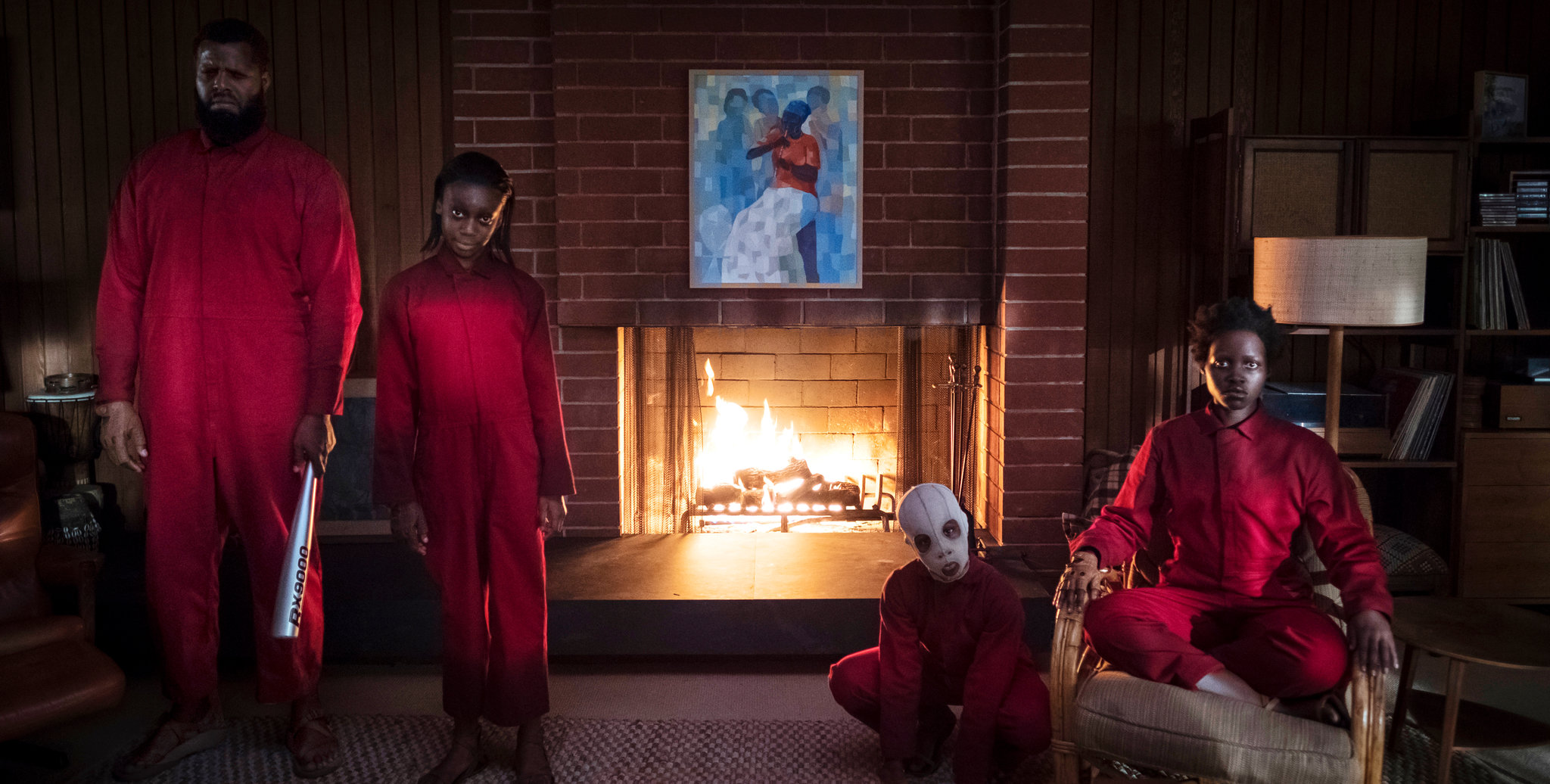
Unlike Jordan Peele’s Get Out (2017), Us (2019) incorporates more elements of horror. Peele said he did this due to some initial confusion regarding the genre of Get Out (2017). According to Peele, the idea behind “the tethered” in Us (2019) came to him when he was a young man who frequently took the train home and would often imagine seeing an alternate world with doppelgängers of the people of the real world when passing through the dark tunnel of the train station. In interviews, Peele expressed that he had difficulty shooting the film, primarily due to the duality of the characters and the difficulty for the actors to constantly switch back and forth between their real world and their tethered counterparts on a daily basis. Regarding the appearance of the tethered, the design team wanted to focus on how the tethered would be affected by not having control of their actions, and how living underground for years would affect their skin. Ultimately, the tethered take on a more ghastly appearance compared to their real world counterparts, with sunken eyes, no eyebrows, and even slight vampire-like features.
Lupita Nyong’o plays both Adelaide Wilson and Red. When playing Red, she uses a distinctly different voice due to her character experiencing damaged vocal cords. Upon being asked about how she developed her voice as Red, Nyong’o responded that she was inspired by spasmodic dysphonia—a vocal condition that is caused by either emotional or physical trauma that causes the person’s voice to take on a rough and raspy tone. She worked with an ear, nose and throat doctor, a vocal coach, and a dialect coach to safely perform Red’s voice. For the psychological performance of Red, Lupita stated that she studied the behavior of imposters, war criminals, and childhood traumas. Regarding the physical movements of Red, Peele wanted Lupita to mimic the movements of a cockroach, remaining still and suddenly springing to action. Winston Duke plays both Gabe and Abraham, his tethered counterpart. As Gabe, Duke had little difficulty getting into character, but for Abraham, he states that he had to completely change his personality to act as a partner to Red.
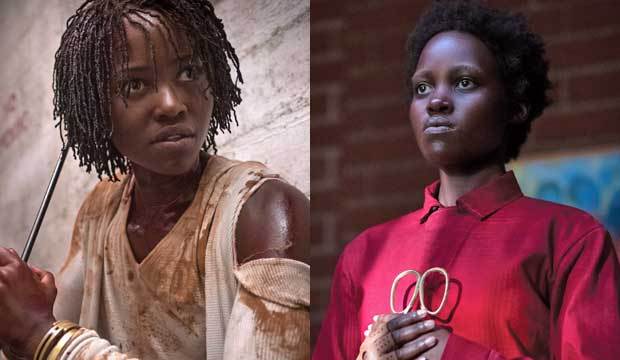
When I first saw the film, I was confused by the message of the movie. Unlike Get Out (2017) which had a clearly defined message on the dangers of modern-day racism in Hollywood, Us (2019) has a much more subtle message. I believe it’s a film about confronting the inner darkness within ourselves. This can be seen with the presence of “the tethered” portrayed as dark reflections of the people of the real world. However, when I found out that “the tethered” were actually created by the U.S. government to replace the people of the real world, I have several complaints of the film. One, how did the government create a living space for all of the world’s population underground with enough electricity, food, and water to live for a lifetime without anyone noticing? Second, what was the purpose of creating doppelgängers in the first place? Was it to control the actions of the people?
Overall, I think Us (2019) is a decent film, however, the film kind of falls apart during the second half. I would have liked the film having “the tethered” been limited to just the main family, rather than everyone in America. That way, we as the audience could get to know the family more rather than just having them limited to horror movie tropes, such as Adelaide being the “final girl”, Abe being the “fool”, Jason being the “wizard”, and Zora being the “warrior”. Personally, I would have liked it if the film were set completely at the beach house with a more psychological cat-and-mouse game between the Wilson family and their tethered counterparts. Despite these complaints, I still think it’s a serviceable horror film. While not as good as Get Out (2017), I recommend you to get out and go check out Jordan Peele’s Us (2019) to see if you can find the social message he’s trying to tell.
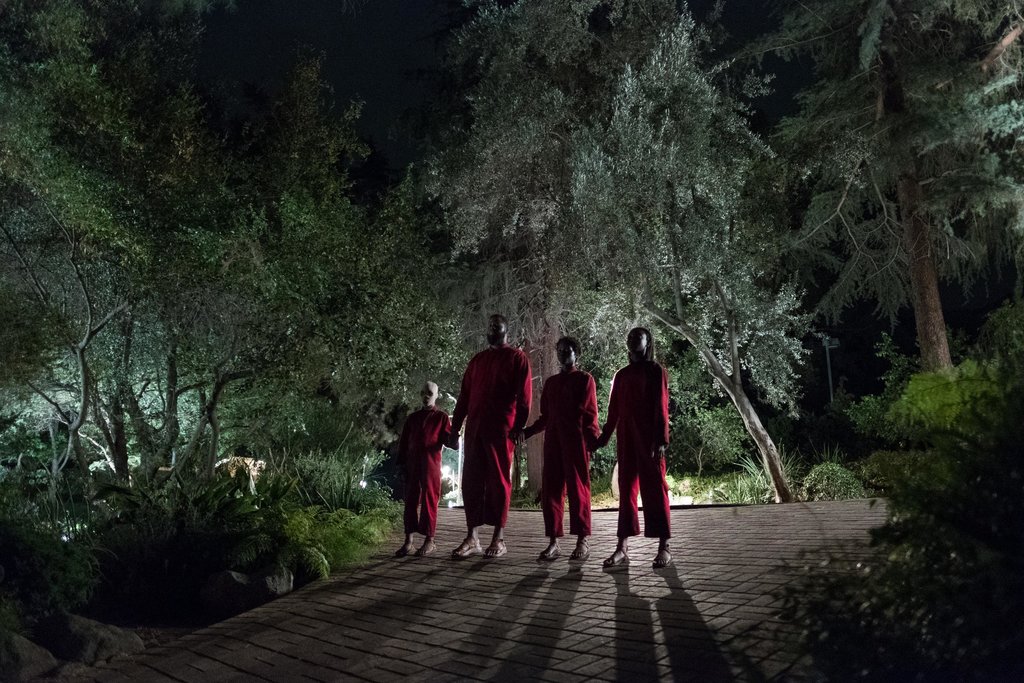


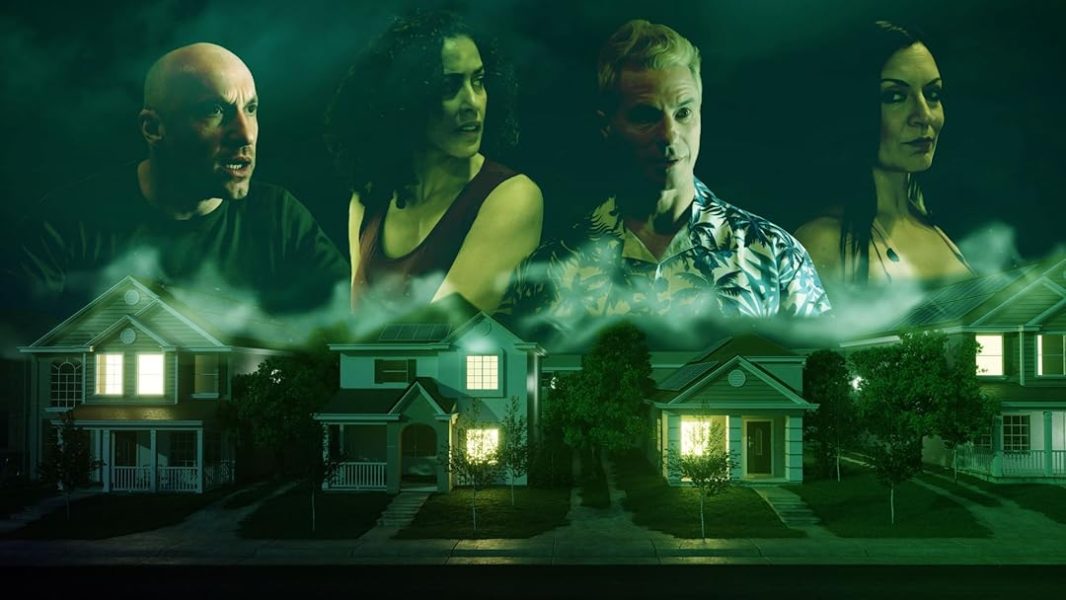





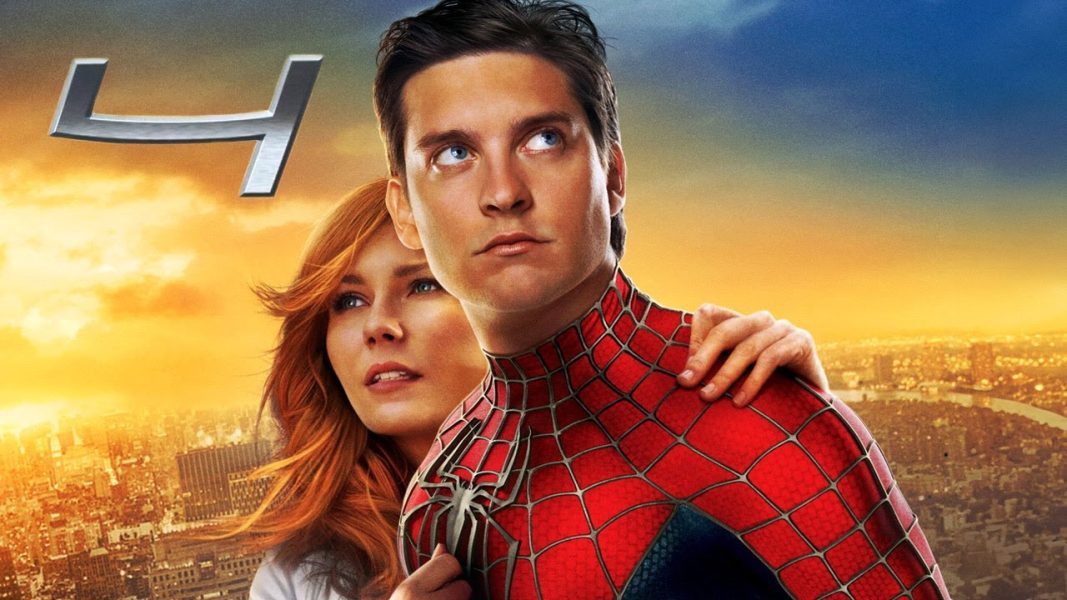
Thanks Arma! Appreciate it!!
Great movie and great review! 😄🙋🏻♂️